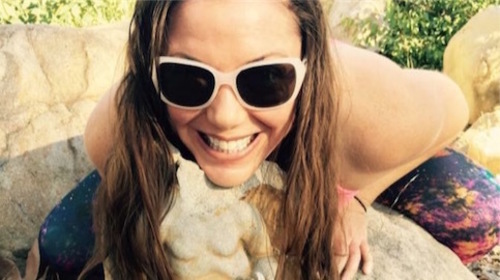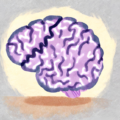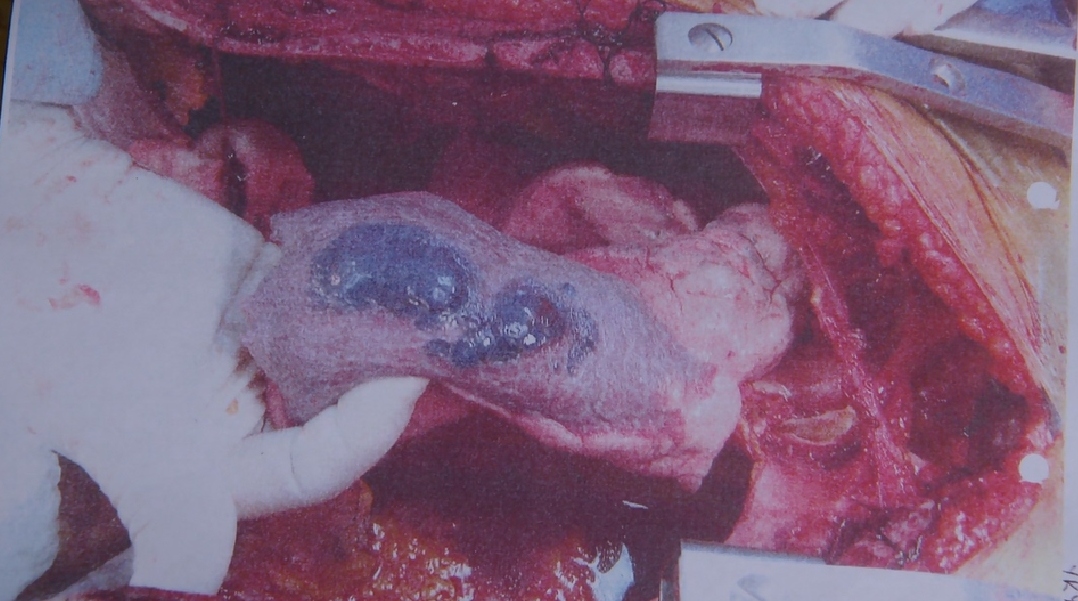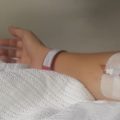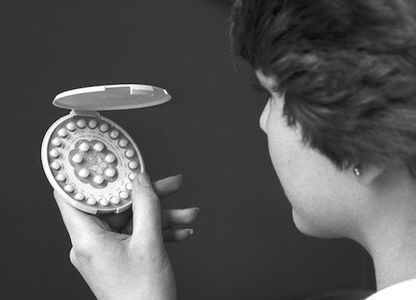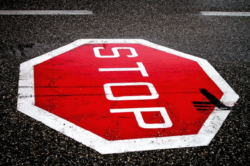When I was 28 years old, I had a massive stroke (a cerebral venous thrombosis in the sagittal sinus area) from a combination of birth control pills and a fairly common clotting disorder, Factor V Leiden. For more of this story, see Part 1 and Part 2.
Trying to Look Normal
One of my final tests in outpatient rehabilitation was to walk around town without falling down or getting lost. The day I passed that test was also the first day that I went somewhere in public by myself. It was a Subway and I stood in line, my heart pounding. I stared up at the menu to keep from looking around me, trying to ignore the sensation that everyone was staring at me. I was also desperately trying to remember how to order things, pay for things, and appear normal. In my head, I practiced ordering my sandwich over and over. I felt like if I made even a tiny mistake that everyone would be able to tell how broken I was, like they could somehow see the brain damage. I’ve never forgotten that feeling and for a long time I was afraid to tell people about the stroke, scared they would look at me differently. But really I was the one who looked at myself differently. I saw myself as broken. Like my body had failed me. And for a long time I didn’t trust my body.
Living With Fear
What no one tells you about life after something like a stroke is the ongoing fear. I’m going to be on blood thinners, which increase my risk for bleeding out, for the rest of my life. The first time I cut myself, I thought I might die. Panic overtook me and I started sobbing, a paper towel clutched to my finger, too afraid to look at the damage. When I finally peeked and found it was just a nick, I felt like an idiot. But I still avoid melons and gourds, instead buying my butternut squash pre-cut. Just in case.
The first time I had a cold, I thought my sinus headache might be another stroke. The first time I pulled a muscle, I thought I might have a DVT (deep vein thrombosis). The first time I had an asthma attack, I was scared I had a PE (pulmonary embolism). If I hit my head on something, which I’m prone to given how klutzy I am, I would wonder if I might suffer another stroke. After all, the doctors said that once having suffered a stroke, my risk for another was that much greater. At least 25-35% of stroke victims suffer a second. Recurrent strokes often have a higher rate of death and disability because parts of the brain already injured by the original stroke may not be as resilient.
Stressing About Stress- Oh, The Irony!
But those aren’t the only things that scare me. I also worry about stress. When I had the stroke, I was newly married and had moved away from my family for the first time so that my husband could attend graduate school. Before we moved, I had a challenging and exciting career, an identity, and a network of friends and colleagues in a large, diverse city. The small college town in the deep south felt like a foreign country—one where I was known only as “Josh’s wife.” When I had the stroke, I had no close friends and for the first time since I was 16 years old, I was unemployed and having no luck finding work. I was under more stress than I had ever been at that point in my life. Until now.
In the past six months, I’ve been going through a tremendously stressful period. I’ve been tested not by one of the major life stressors, but several at once. And I only recently realized that part of the overwhelming anxiety associated with these situations is the nagging fear that my body “fails” me when I am under so much stress. I’m terrified that I might have another stroke. Because now I actually know what having a stroke means. It means more fear, frustration, stress, self-doubt, identity crisis, feeling helpless, being helpless—and that’s only if you survive.
Getting Off the Blame Train
The on-going message from my doctors, armed with studies funded by the drug manufacturers, was that I was an anomaly. That what happened to me almost never happens. So I figured I must be weaker than other women. My body couldn’t handle birth control pills when millions of other women have no problem with them. At least that’s what the pharmaceutical companies want us to believe.
The consequence of that line of reasoning is that I blamed myself, something I didn’t even realize until I was in a yoga class last year.
When my teacher said, “Forgive yourself for something you think you did wrong,” I wondered what that might be. Then a voice came to me very clearly. “You blame yourself for your stroke,” it said. I sat with that sentence and turned it over in my head, looking at it from all directions. I did blame myself. And I had been blaming myself for nearly 10 years.
I thought writing my thesis had helped close the chapter on what happened to me. But somehow it only reinforced the narrative that I was weak and couldn’t trust my body. Really, I had been living in fear and babying myself for nearly a decade. After class, I made my way to my car, buckled my seatbelt, and cried all the way home.
The repercussions of having a stroke at 28 caused by hormonal birth control and a common clotting disorder still affect me today, in big decisions and little ones—from switching to a new blood thinner (so I no longer have to give myself shots) to wearing a helmet while biking around my neighborhood (since I can’t really afford another brain injury). I may have to live with the fear of having another stroke and the fear of bleeding out. I may have to get my blood checked every six months, wear a medic alert bracelet, use compression socks. But I don’t have to blame myself. The stroke was not my fault. I was failed by a greedy pharmaceutical industry, a society that values profit more than human life, and an overworked and under-informed medical community.
A New Story
I’ve learned that we are the product of the stories we tell ourselves and I have been telling myself the wrong story. I was not failed by my body. I was not weak because I had a stroke. The real story is that I am strong. Unbelievably strong. My body survived a stroke. For a month! My body survived being given medication that should have killed it. My body survived being sent home from the emergency room twice, massive seizures, clots, bleeding, and brain damage. My body recovered. And I am thriving. I am not weak. In fact, I’m stronger than ever and I’m ready to finish the work that I started back in graduate school. I’m ready to stand up and fight for the health and safety of women. And I’m not alone.
These first three articles are just the beginning of my research and exploration of the dangers of hormonal birth control, as well as other women’s health topics. I hope you’ll keep coming back to learn and share what I’ve found. Because despite what the pharmaceutical companies want us to believe, we ARE strong. And we are even stronger when we work together.
Real Risk Study: Birth Control and Blood Clots
Lucine Health Sciences and Hormones Matter are conducting research to investigate the relationship between hormonal birth control and blood clots. If you or a loved one have suffered from a blood clot while using hormonal birth control, please consider participating. We are also looking for participants who have been using hormonal birth control for at least one year and have NOT had a blood clot, as well as women who have NEVER used hormonal birth control. For more information or to participate, click here.
